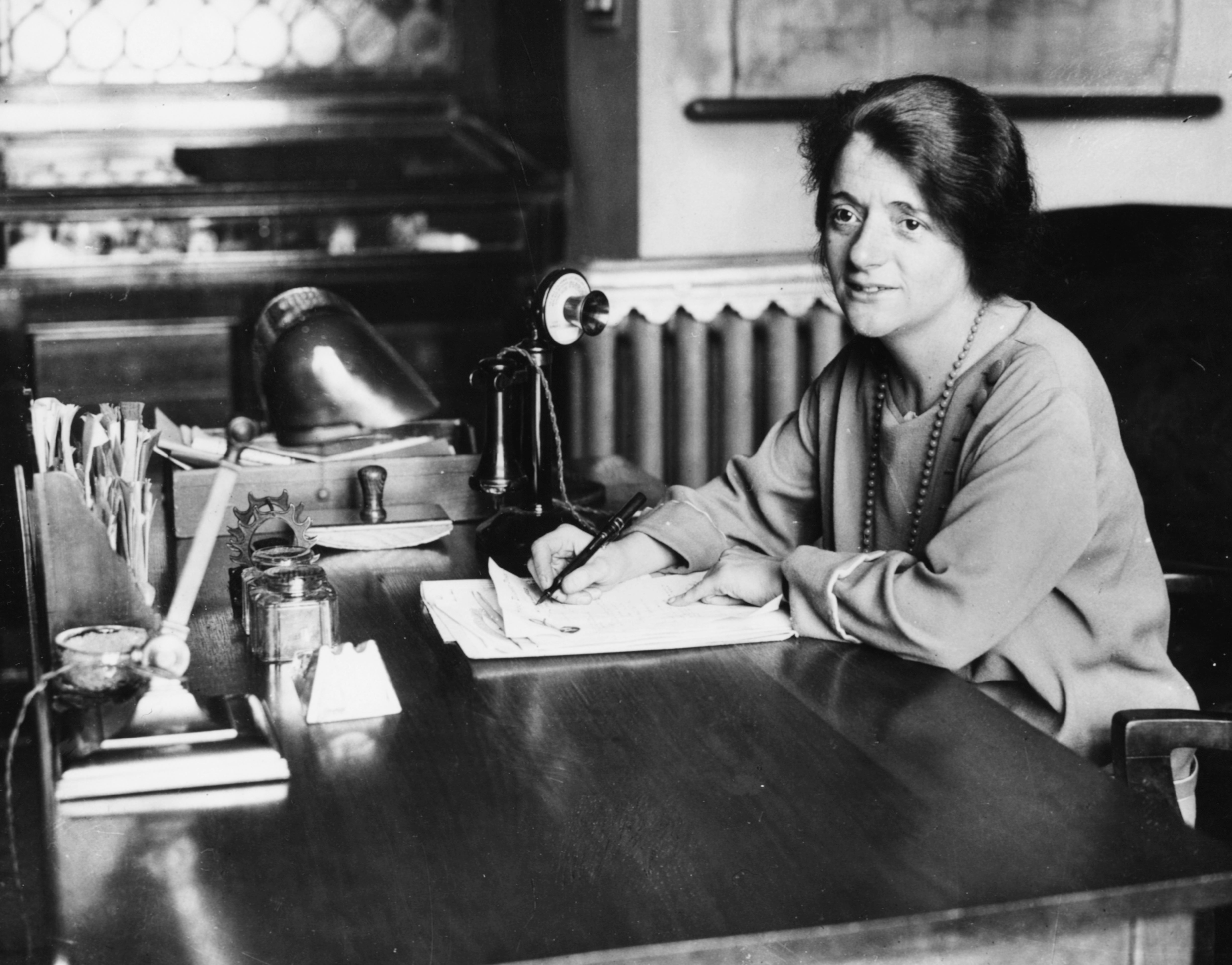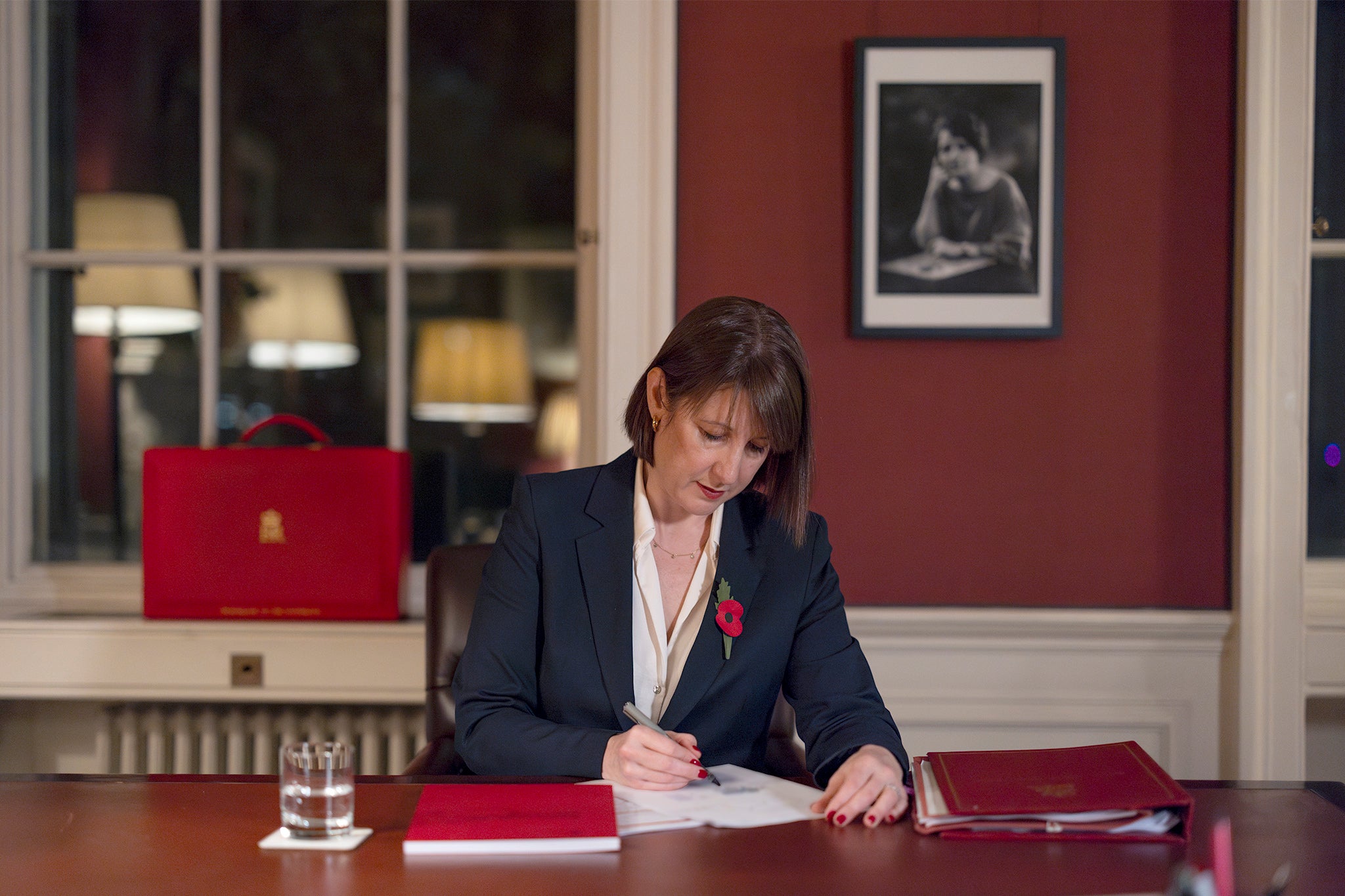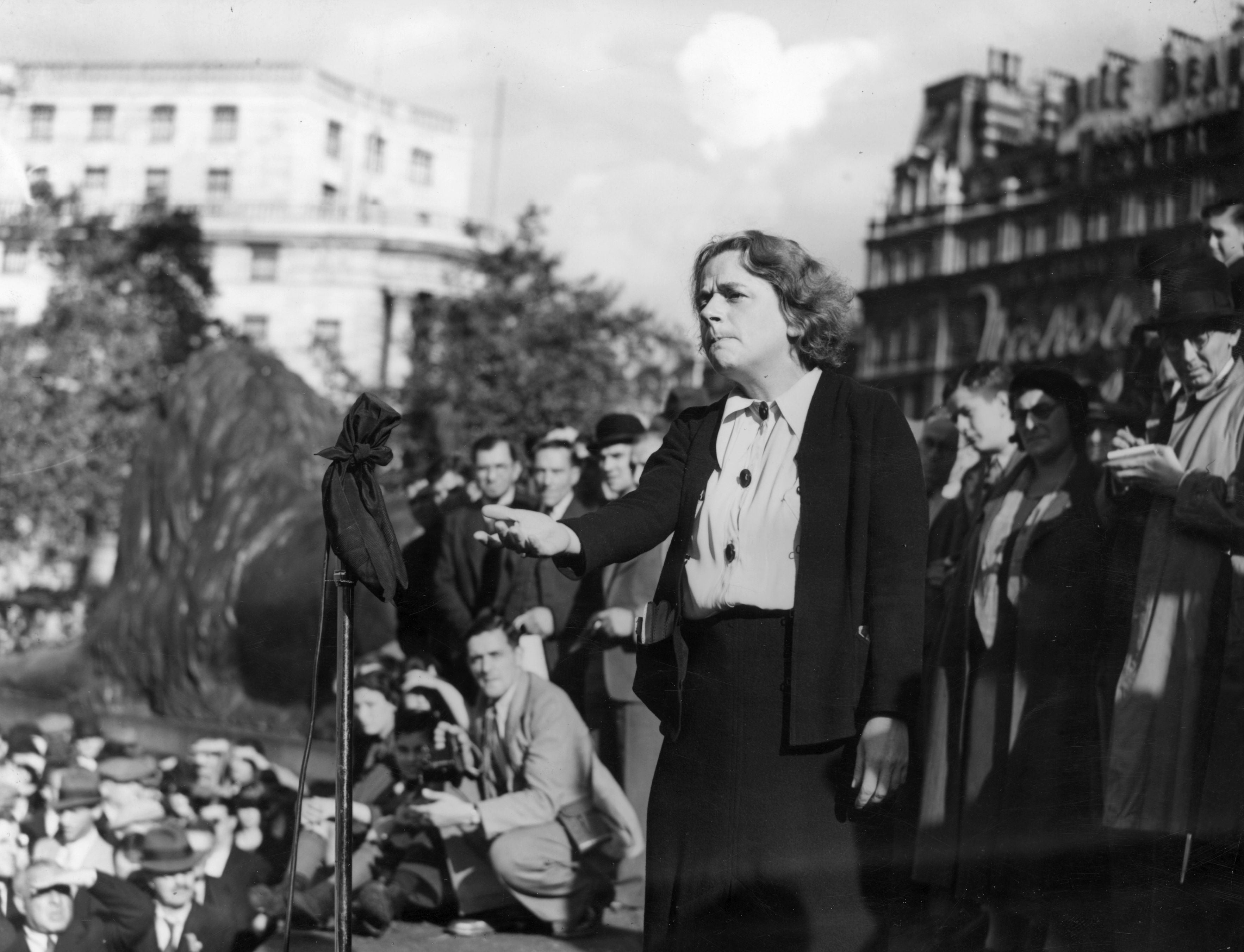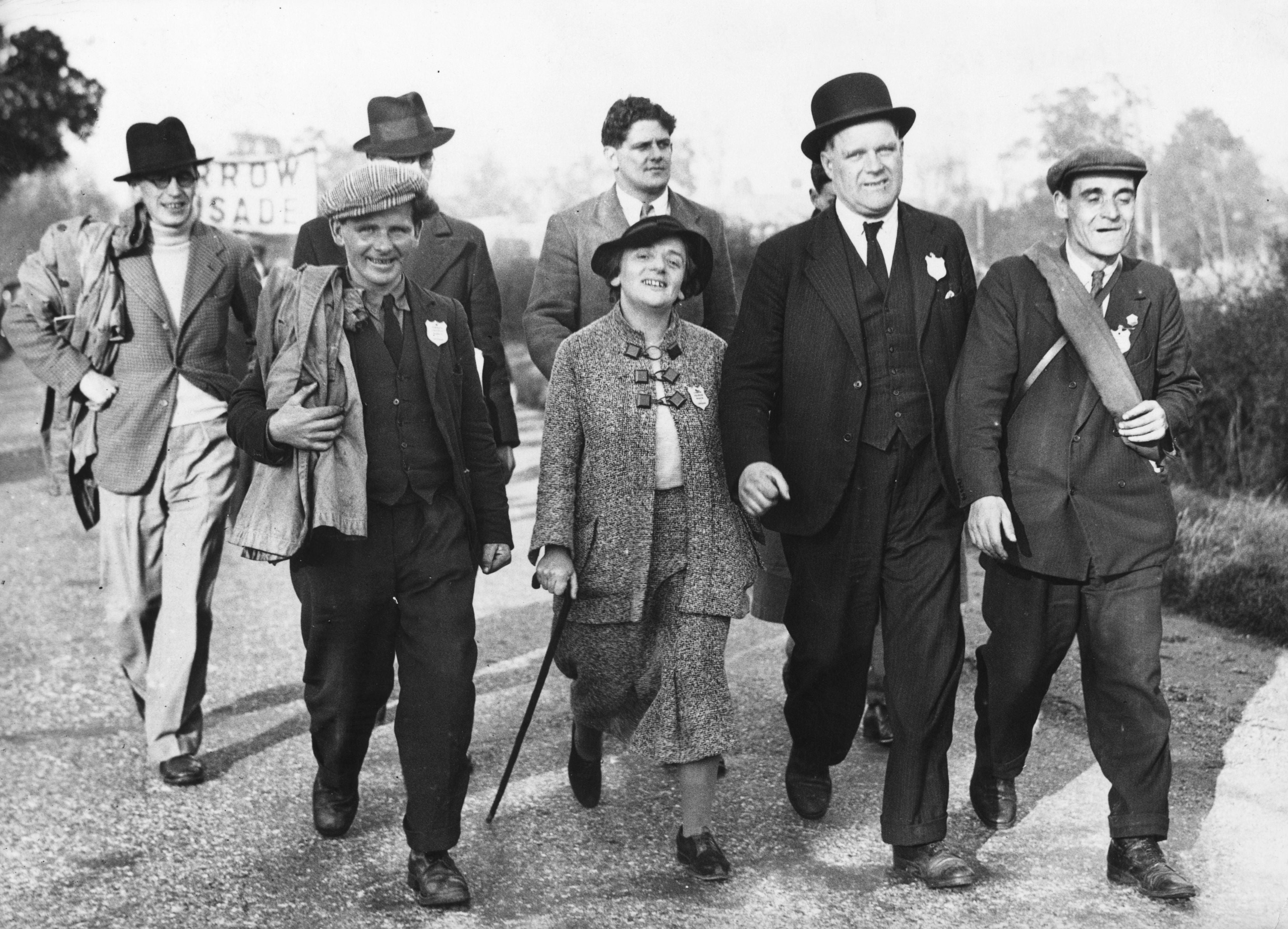Why it is wrong to sneer at Rachel Reeves’ heroine ‘Red Ellen’
As Reeves made the finishing touches to her bombshell Budget, beady eyes noticed the painting of Nigel Lawson in her office had been replaced by a portrait of a female revolutionary socialist. As right wing commentators sneered at her choice, Eleanor Mills argues why Reeves is right to honour ‘Red’ Ellen Wilkinson - a remarkable politician and trailblazer for women everywhere


Just when you thought there were no more details to pore over in relation to the Budget, along came another one, which some said told you all you needed to know about Rachel Reeves, the first ever female chancellor of the Exchequer. And it was there for all of us to see in the corner of her office. A picture of the former Tory chancellor Nigel Lawson, which had been put there by Rishi Sunak when he was running the Treasury, had been replaced with a portrait of – gasp – a woman. And a socialist one at that.
As Reeves was photographed putting the finishing touches to her Budget, beady eyes zoomed in on the striking picture above her desk of Ellen Wilkinson, dubbed “Red Ellen” because of both her hair and her political beginnings in the British Communist Party.
As if £40bn in extra taxes wasn’t enough to get worked up about, the Tory press decided to get themselves into a further lather, using this portrait as final proof of where Reeves’s sympathies lie. Of course, only a socialist/communist would raise employers’ national insurance, tinker with capital gains tax, and charge VAT to private schools, where only 6 per cent of children in the UK go.
But this is an unfair reading of Reeves and her politics, and of the incredible Wilkinson, who, as Britain’s first ever female education secretary (taking up the role in 1945 under Clement Attlee), brought in free secondary education for all, raised the school leaving age to 15, and introduced free milk in schools.
Red Ellen is a female icon; a role model, in the truest sense, of what a clever woman from a poor background can achieve – not just for herself, but for other women who were, like her, born on the wrong side of the tracks.
Born to a poor family in Manchester, Wilkinson was a brilliant scholar from the off. As a sick child, she read Darwin; she later won a scholarship to Manchester University and made a name for herself in the women’s suffrage movement. She became the 10th female MP in 1924, and the second woman, after Margaret Bondfield, to achieve a place in the British cabinet.
She even served in Winston Churchill’s war cabinet, where she was in charge of air-raid shelters, saving millions of lives and overseeing a network of courageous, impressive, and often female air-raid wardens. But perhaps Wilkinson’s biggest claim to fame was as the leader of the Jarrow Crusade in 1936, which saw impoverished Tyneside workers walk to parliament to complain about poverty and poor working conditions.
Anyone who knows anything about Reeves can immediately understand why our first female chancellor would look to Ellen for inspiration in a moment of reflection. This is a woman, after all, who entered No 11 declaring that all the pictures in the chancellor’s stateroom “should be of a woman, or by a woman”. Reeves also tried to have her predecessors’ private urinal removed from the chancellor’s private office. Fair enough – if that isn’t a gendered indicator of who should do a particular job, I don’t know what is.

Reeves comes from a modest background as the child of two teachers. She was a child chess prodigy, a self-proclaimed “girlie swot”, and professes that hard work and application can allow women to outperform chaps who are to the manor born. (Impressively, her younger sister is also an MP.)
Reeves also has a strong desire to make the world a fairer place, particularly by giving “every child the chance to flourish”. She refers often to her strong Christian faith, and how her experiences working in Salvation Army shops with her grandparents as a child, and latterly visiting food banks, have spurred her on to improve the lot of working people.
And yes, Red Ellen was a founding member of the British Communist Party, but when, after four years, Labour ruled that its members could not belong to both, Wilkinson chose Labour, describing herself as a socialist.

Reeves, by contrast, denies being a socialist – she describes herself as a social democrat, explaining that her attachment to social justice is coupled with a firm belief (honed through decades working for the Bank of England) in “a dynamic, capitalist economy”.
In a recent interview, she said: “I want people to be successful and to get on in life. That includes earning plenty of money.” OK, it’s not quite Peter Mandelson saying he is “intensely relaxed about people getting filthy rich” – but it is clearly not a communist or even a socialist perspective, either.
As an entrepreneur who owns two businesses, I can understand that Reeves is trying to create a fairer way to distribute wealth in our country. I agree with her that in 2024, in the sixth-richest country in the world, it is unacceptable that millions should be faced with the dilemma of eating or heating their homes. Or that for so many who are working hard, it is impossible to make ends meet or make a good life for their children. And I think Red Ellen would agree with that, too.

When she died in February 1947, an obituarist wrote: “Wherever there was a row going on in support of some good or even fairly good cause, that rebellious redhead was sure to be seen bobbing about in the heart of the tumult.”
Women stand on the shoulders of giants, like the suffragettes who made it possible for us to vote and hold public office. Ellen Cicely Wilkinson was a remarkable woman, who, like all the other bold and brilliant pioneers, made Reeves’s accession to the job possible.
That is something to celebrate, not sneer at – whatever your feelings are about her Budget.
Eleanor Mills is the founder of noon.org.uk, home of the Queenager, and the bestselling author of ‘Much More to Come: Lessons on the Mayhem and Magnificence of Midlife’ , published by Harper Collins
Subscribe to Independent Premium to bookmark this article
Want to bookmark your favourite articles and stories to read or reference later? Start your Independent Premium subscription today.






Join our commenting forum
Join thought-provoking conversations, follow other Independent readers and see their replies
Comments